Negotiating Syria’s future with terrorists?
Why Jaysh al-Islam cannot be party to peace
(Catherine Shakdam, RT) ~ Against all logic, and many would argue reason, Western powers have allowed for dangerous radical factions to hold a great many cards in the carving of Syria’s future, arguing pluralism and an imperious need for fair political representation.
But what happens when such parties, such democratic pawns, prove to be radicalism’s most rapacious tools – the very expression of the terror Western powers and their allies have so longingly claimed to have ambitions to destroy?
Aleppo district shelled with chemical gas by Saudi-Turkey supported gangs of Jaysh al-Islam, FSA (Photo © George Ourfalian – Reuters)
Wonder no more; Jaysh al-Islam, the darling that Turkey, Saudi Arabia and Qatar have systematically propped up against Syrian President Bashar Assad, is here to answer those burning questions.
Positioned as both a legitimate and relevant political faction, Jaysh al-Islam was sold as a democratic champion and a carrier of popular will by those powers which, from the outset of the Syrian war, have engineered the fall of Syria’s institutions. Behind Assad’s presidency lies an office whose authority is anchored in Syria’s constitution. Challenge its legitimacy, and you are in fact challenging Syria’s very national sovereignty.
Beyond the catchy headlines and talk of democratization, reforms and just retribution, Western powers and their regional allies are in fact debating Syria’s right to self-govern; everything else has been political white noise.
Talk of democracy and counter-terrorism has been played ad nauseam so that never-ending military interventionism could be sold as responsible politicking. Five years into the Syrian war, I would like to think that the world has woken up from its trance – especially since terror has had a nasty habit of spreading as exponentially as Western powers have opened up new fronts.
What a mind-boggling phenomenon it is to see Terror’s armies spread and gain before Western military might. How terribly confusing to see Western capitals make a case for regime change in Syria, when the real threat facing not just Syria, but the whole region has been Islamic extremism.
How conveniently pressing those calls for regime change are…
Can we stop already and look at Syria and recognize that Terror has been played as a tool of mass political destabilization, an asymmetrical weapon of war wielded against a government which refused to play ball with globalists? As always, control was mainly the agent provocateur, the catalyst which led the powers that be to devise Syria’s fall – or I should say President Bashar Assad’s early exit. Only, he was never meant to withstand such pressure.
I very much doubt that the West could ever have imagined that his presidency would withstand the ravages of radicalism. Yet it did. It is actually because it did that Western powers’ hands are now being revealed in the most unsophisticated way.
After all, lies have very short legs … or so the saying goes.
So, what is it about Jaysh al-Islam that makes the West and its Arab friends go weak at the knees? What is it indeed about these so-called “moderates” which justified military expenditures worth billions of dollars?
In June 2012, the US State Department reportedly allocated $15 million in“non-lethal aid”for civilian opposition groups in Syria, alongside distribution of military equipment, including assault rifles, anti-tank rocket launchers and other ammunition.
In April 2013, the United States confirmed it had set up a $70 million program in Jordan“that is training the kingdom’s special forces to identify and secure chemical-weapons sites across Syria should the regime fall and the wrong rebels look like getting their hands on them,” as reported in The Economist. That same month, the Obama administration also promised to double non-lethal aid to the Syrian opposition, bringing the total to $250 million.
The word you want to pay attention is: “chemical.” Following Washington’s own rationale, military efforts had to be exerted so that Terror would not acquire dangerous weapons of war: i.e: chemical weapons. As a responsible superpower, the US would not dream of enabling dangerous lunatics… only its enemies would ever resort to such tactics. Washington and its allies don’t play by such rules; they stand above the fray.
Here’s that name again: Jaysh al-Islam… the elephant in the room.
Let’s discuss the details, since the devil is in them. Among its many capabilities, and they have been many, Jaysh al-Islam recently admitted to using chemical weapons against the Kurds. Allow me to state the obvious and offer a reminder that since the Kurds have recently been upgraded to Turkey’s grand enemy of the state, such an attack is just too convenient not to scream genocidal calculation on Ankara’s part.
A news report carried by Sputnik read as follows:
“Syrian Islamist militant group Jaysh al-Islam has admitted to using ‘forbidden’ weapons in clashes with the People’s Protection Units (YPG) in Aleppo’s Kurdish-held Sheikh Maqsood district.”“In Iraq and Syria, American leadership – including our military power – is stopping ISIL’s [Islamic State/IS, formerly ISIS/ISIL] advance. Instead of getting dragged into another ground war in the Middle East, we are leading a broad coalition, including Arab nations, to degrade and ultimately destroy this terrorist group,” said US President Barack Obama on January 20, 2015, during his State of the Union address.
Really now? Either he’s lying, or his administration has proven criminally incompetent in choosing its friendships. Jaysh al-Islam did not exactly wish themselves powerful, did they.
They were aided, trained, and empowered. Not least of all they were fronted as legitimate political actors, courtesy of Turkey, Qatar, and Saudi Arabia – the Middle East’s new holy trinity. Back in December 2015, Jaysh al-Islam sent a delegation to Riyadh to attend the Syria peace talks.
Although the group embodies the very definition of Terror, its leadership has been considered a worthy interlocutor by Western powers on account that it retains Riyadh’s ear.
If you are still confused as to who Jaysh al-Islam is, let me put it this way: its goals are aligned with that of Al-Nusra Front, Al-Qaeda, and IS.
And yet, the radical militant group has been granted more political courtesy than Syrian President Bashar Assad was ever extended.
What in the world of politics would possess the West to support the very entities which seek to destroy its way of life, and its sense of self? I would say utter lunacy, but that would be missing the point.
What does power and control mean? The domination of a region whose riches and geostrategic worth are such that superpowers have played a game of Russian roulette over them?
Can we now blame President Assad for refusing to sit at the peace table? Can we even speak of peace negotiations when the likes of Jaysh al-Islam are offered a seat? Who are we kidding here?
Syrians are not playing of course; nor should they have to.
The statements, views and opinions expressed in this column are solely those of the author and do not necessarily represent those of RT.
RELATED -1- :
5 facts about Jaysh al-Islam, group that used chem weapons in Syria & has delegate at UN peace talks
The Islamist group Jaysh al-Islam admitted to using chemical weapons against Kurdish militias in Aleppo. It also uses human shields and publishes execution videos – yet it has a delegation at the UN-backed Syria peace talks in Geneva.
Jaysh al-Islam (Army of Islam), formerly known as Liwa al-Islam (Brigade of Islam), is a coalition of Salafist Islamist militant groups based in the Douma and Eastern Ghouta neighborhoods of the Syrian capital Damascus.
1: Who supports it
Jaysh al-Islam is one of the two major militant groups in Syria supported by Turkey, Saudi Arabia and Qatar, and is part of a larger coalition called the Islamic Front. The coalition seeks to make Syria a country ruled by sharia law, exactly what its rival Islamic State (IS, formerly ISIS/ISIL) aims to achieve.
2: Who considers it terrorist
The group is considered a terrorist organization by Syria’s allies Russia and Iran, and also by Egypt. It describes as “brothers” fighters of the Al-Nusra Front, the Syrian branch of Al-Qaeda, which is considered a terrorist group by the UN and many nations.
3: ISIS-style executions
In June 2015 Jaysh al-Islam released a video of the execution of captured Islamic State fighters, which mimicked similar videos produced by the notorious terrorist group. Unlike IS, Jaysh al-Islam dressed the executioners in orange prison robes, rather than their victims.
4: Allegations of using human shields
In November 2015 the group was exposed as using caged men and women as human shields in Eastern Ghouta. The people were reported to be Alawites, including military officers of the Syrian Army and their family members who had been taken captive.
5: Peace talks participant
In December 2015 Jaysh al-Islam sent a delegation to Riyadh, where Saudi Arabia was hosting a conference of Syrian armed groups. Mohammed Alloush, the brother of Jaysh al-Islam founder Zahran Alloush, was elected chief negotiator for UN-backed peace talks in Geneva. Zahran Alloush was reportedly killed by a Russian airstrike days later.
RELATED -2- :
‘Jaysh al-Islam should be eliminated
from Geneva talks over Aleppo chemical attack ’
The Jaysh al-Islam militant group should be excluded from Syria peace talks because a group which uses chemical warfare should not be at the table and be treated as civilized, said retired CIA and State Department official Larry Johnson.
A toxic gas attack was perpetrated by the Jaysh al-Islam militant group against Kurdish YPG forces and civilians in the city of Aleppo on April 7. The group admitted using“forbidden” weapons against the Kurdish militia.
RT: Jaysh al-Islam admitted the attack but went on to apologize. Do you find that surprising?
Larry Johnson: For almost four years now we have known that key elements of the radical Islamists – particularly Al-Nusra and ISIS – have had persons that have skill and capability in developing chemical weapons. And actually they were the ones implicated in the August 2013 attack, the one which the Obama administration tried to blame on the government of Syria. That was an important incident because out of that incident the government of Russia came in and supervised the destruction of the chemical weapons stockpile that Syria had. So, this really has been a problem with radical Islamists and it’s time for those who had been willing to excuse their reprehensible conduct to admit that these people really are worthy of condemnation.
RT: What is known about Jaysh al-Islam and where are they getting their weapons from?
LJ: I don’t really know much about them other than that the primary source of the weapons are coming out of rat lines that originate with Saudi Arabia and Qatar. Turkey is facilitating the delivery of these weapons. So, these countries have played an important role in arming these groups. And the reason they are doing so is because they see this particular group, and the others like it, as the way to try to offset the expanding influence of Iran in the region. So, this really boils down to a rift between Iran and Saudi Arabia in terms of who is vying to have the most control in the area.
RT: Jaysh al-Islam has a seat at the Geneva talks on Syria. Could this attack undermine the negotiations?
LJ: It should eliminate them from the process. You cannot allow a group that is waging active chemical warfare to sit at the table and be treated as if they are civilized, because this is uncivilized conduct. These weapons, their effect has always been exaggerated at least in terms of the ability to impede military units…The real danger comes to civilians and as they are showing just in the last 48 hours the targets are civilians. And they really have no effective way of defending themselves. That really is what makes these weapons so despicable.
RT: This is not the first report of a chemical weapons attack by extremists in Syria. How have they managed to get hold of these materials or to manufacture them?
LJ: It is really not that complicated to manufacture them. To manufacture military grade weapons – yes, that’s difficult. But these are not military grade weapons. With simple chemicals such as chlorine you can create and release a chemical agent that is going to make it difficult for people to breathe and cause people to get sick…The fact that most of the victims here were sick and not killed instantly lets you know that this was an improvised device, that this was not military munitions. Military munitions of this sort can cause fatalities and very quickly. But it also requires a broad system for distribution, in other words you just not have an individual running around with an aerosol spraying it. You have to have concentrated either artillery, aerial bombardment of some sort or actually drop it from planes. So, to the extent that it looks like it was carried out through the rudimental artillery barrage because of its lack of lethality….
Ali Rizk, expert on Middle East affairs, says that the Jaysh al-Islam chemical attack on the Kurds may be an “attempt to sabotage the peace talks” in Geneva.
“You have to remember that there is a disagreement now in Geneva about the fate of Syrian President Bashar Assad. The Syrian government delegation is against the precondition of Assad stepping down. The opposing groups continue to insist on him stepping down – this is the main sticking point. I think that what happened now with Jaysh al-Islam doing this – reflects the failure of the peace talks in Geneva. The failure is because of these groups insisting on the same precondition of Assad stepping down. This would mean – we will have more escalation, I believe, in Syria now in the upcoming period. I think we will see the response both from the Syrian army and also, possibly, from both Russia and the US because it is not in the interest of either Russia or the US or others for the ceasefire to fail. The only ones that would have the interest in not reaching an agreement would be Turkey first and Saudi Arabia second,” he told RT.
RELATED -3- :
Syrian Islamist group Jaysh al-Islam admits
using banned weapons against Kurds in Aleppo
The Jaysh al-Islam militant group fighting government forces in Syria has admitted to using “forbidden” weapons against Kurdish militia in Aleppo. The group’s statement comes after reports of chemical gas being used in shelling Aleppo’s Sheikh Maqsood district…. … …
RELATED -4- :
Shocking images show victims of chemical attack
on Aleppo neighborhood in Syria
Disturbing photos and videos from local journalists show the outcome of Tuesday’s chemical attack on Aleppo’s Sheikh Maqsood neighborhood, which is currently held by Kurdish YPG militias.
SOURCES:
Catherine Shakdam, RT News Question More
All Links in the Titles
~
Submitted by SyrianPatriots
War Press Info Network at:
https://syrianfreepress.wordpress.com/2016/04/10/aleppo-chemical-attack/
~
The views expressed in this article are the sole responsibility of the author and do not necessarily reflect those of the Blog!
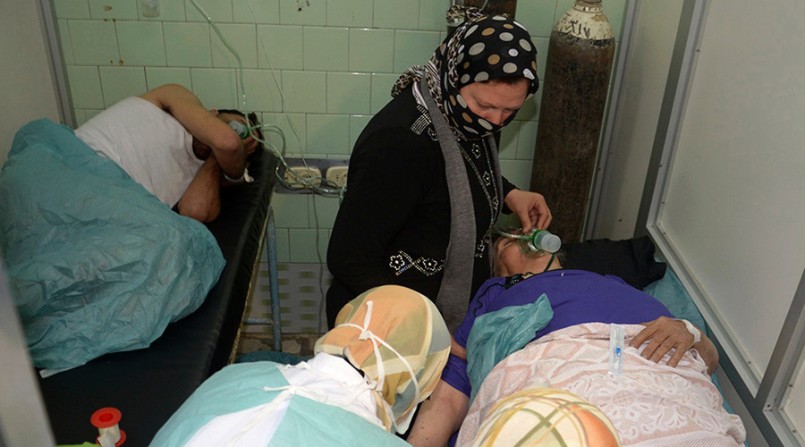
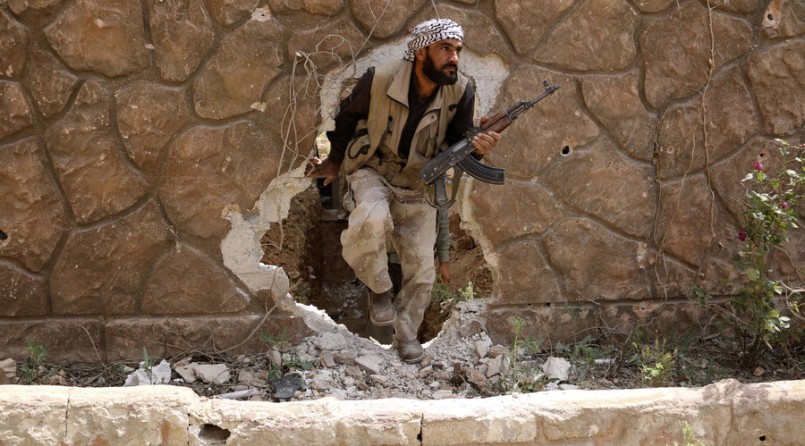
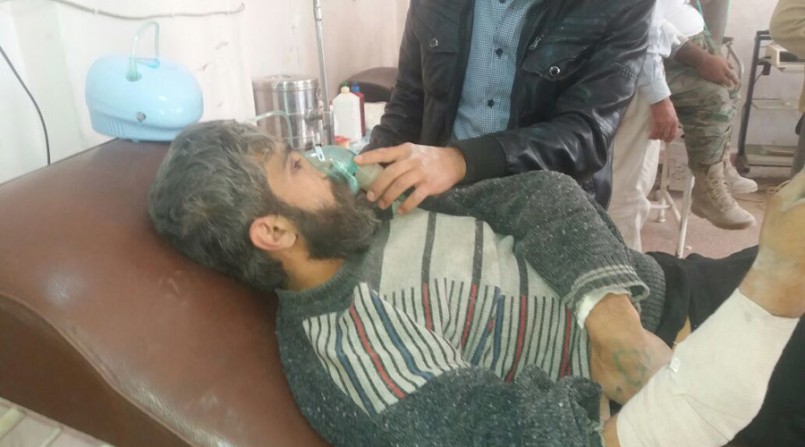
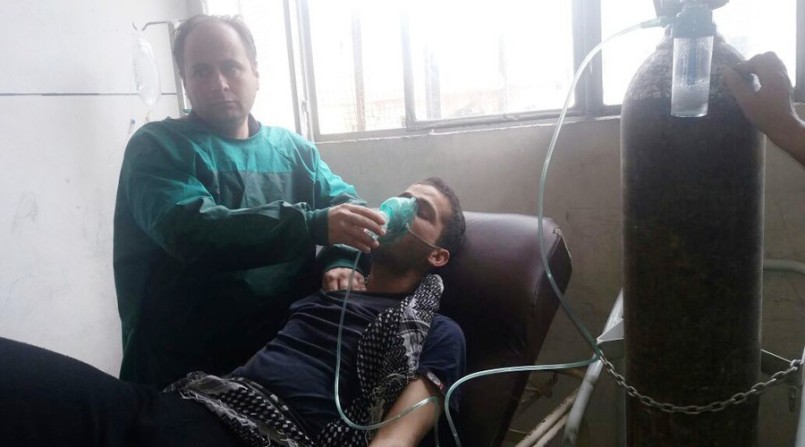
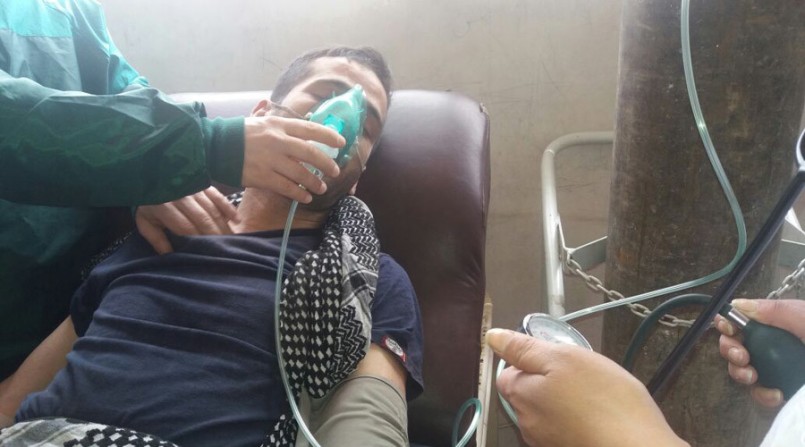
No comments:
Post a Comment